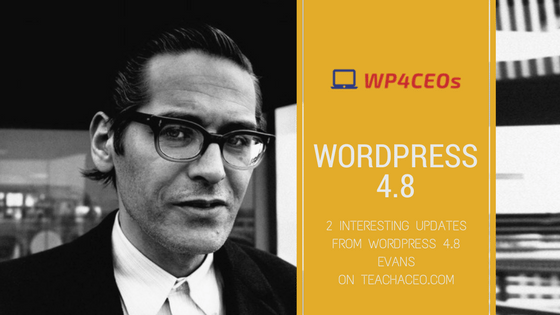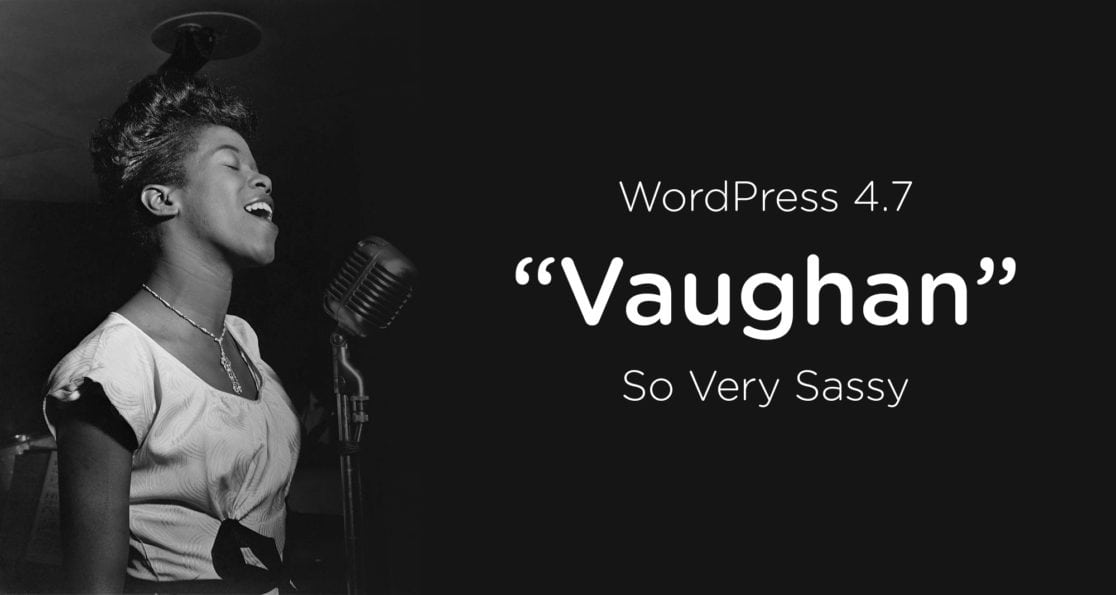As musician Frank Zappa once said, “So many books, so little time.” For a business owner or budding entrepreneur, books can be a life preserver. Of course, valuable lessons often come from doing. Business lessons can be learned by trial and error and by putting yourself out on the line. But the same lessons can also be had from a book. Reading about the errors and triumphs of other business leaders can prevent you from making mistakes and push you in the direction of success. Beyond lessons, a good business book can inspire you to lift your business to an even higher level. Below is a selection of business books chosen as favorites by entrepreneurs and business owners.
#1- “Never Split the Difference” by Chris Voss

My favorite book on business is “Never Split the Difference: Negotiating as If Your Life Depended on It” by Chris Voss. I recommend reading this book one chapter at a time and practicing the ideas and techniques in each chapter. If you practice them, you will see a big improvement in your negotiating skills.
Thanks to Yoel Gabay, Freedom Care![divider style=”normal” top=”0″ bottom=”0″]
#2- “Getting to Yes” by Roger Fisher & William Ury

I recommend this book because I learnt a lot from it. I also took the authors’ negotiations class in business school and it reminds me of what they taught us: we are continuously negotiating in business and in life and you must always keep in mind what your best options are and be prepared to walk away. It explains how to negotiate and provides a step-by-step guide to reaching an agreement, whether for personal or professional reasons. This is a timeless classic that is always in trend.
Thanks to Rameez Usmani, Pure Tuber![divider style=”normal” top=”0″ bottom=”0″]
#3- “Traction” by Gino Wickman

That book is one I would recommend to both new and experienced entrepreneurs because it covers the foundations. Wickman walks you through the fundamentals of founding and running a company. He discusses everything from establishing ground-level goals and objectives to managing people as the company expands. Without the fashionable start-up terms and examples, it's actually just business 101. Wickman also discusses the Entrepreneur Operating System (EOS), which many entrepreneurs are already familiar with (in some way, shape or form, if not directly from the book). It's how I run my business even after four years. I learned a lot from that book.
Thanks to Daniel Foley, Loanx! [divider style=”normal” top=”0″ bottom=”0″]
#4- “What Would Steve Jobs Do?” by Steve Jobs

This is my favorite book because it deconstructs Steve Jobs' entire approach to everything he did and gives you a framework to apply in your own business. It examines six major aspects from Job's perspective. Customers, culture, leadership, branding and marketing are among them. It's a fascinating look inside his bright mind and how we might apply his ideas to our own lives.
Thanks to Adam Wood, Revenue Geeks![divider style=”normal” top=”0″ bottom=”0″]
#5- “Company of One” by Paul Jarvis

On this list of the best business books to read this year is Paul Jarvis’s “Company of One: Why Staying Small is the Next Big Thing in Business” is without a doubt my top pick. In the book, author and seasoned solopreneur Paul Jarvis explains how to develop a self-funded, profitable and joyful business that allows you to live the lifestyle you choose. “Company of One” is a refreshing path for entrepreneurs to focus on building a purposeful, single-person business that is designed to last in a world overflowing with business advice or blogging tips that tell entrepreneurs to launch a fast-growing start-up, get investor funding and aim for billions in revenue or focus on the money. I've reread this book several times since acquiring an early copy, and I can say it's one of the greatest guides I've discovered to developing a business you'll love and how to escape the trap of following goals and ideals that aren't relevant to you. Jarvis's central message, which has been translated into 15 languages and counting, is that the real key to creating a richer and more fulfilling work life may be to work for yourself, set your own hours and become a (more profitable) company of one rather than scaling your ambitions to become a massive corporation. This book provides you with a step-by-step guide to accomplishing that goal.
Thanks to Gavin Johnson, EV Cable![divider style=”normal” top=”0″ bottom=”0″]
#6- “Good to Great” by Jim Collins

“Good to Great: Why Some Companies Make the Leap and Others Don't” by Jim Collins is a timeless classic and one of the best management-related business books I've ever read. While this book was first published in 2001 by Jim Collins, a world-renowned author, Stanford researcher and consultant, his extremely actionable advice and engaging case studies have stood the test of time. In the book, Collins outlines how organizations transcend from being just good to truly great firms that change entire industries for the better as well as the reasons why most companies fail to accomplish that leap. This business book delves into the qualities that are similar to the world's few organizations that have been able to sustain outstanding success for a long time. It is a mega bestseller–with over four million copies sold so far–and a must-read if you wish to start your own business one day.
Thanks to Gerrid Smith, Property Tax Loan Pros! [divider style=”normal” top=”0″ bottom=”0″]
#7- “The 7 Habits of Highly Effective People” by Stephen Covey

The book is considered the best business book for many reasons, including the fact that the book has stood the test of time and is just as relevant in today's fast-changing business world as it was when it was first published over 30 years ago. The book contains timeless wisdom that can be applied to any life situation or career path. Covey focuses on profound insights into human nature and how we can work with our own tendencies rather than against them. The simple message throughout the book is that, if you want to make significant changes in your life, you have to be willing to take an honest look at yourself and make some fundamental changes. The book is intended to help you do just that, which is why it's not only the best business book ever written but one of the most influential self-help books of all time in my opinion.
Thanks to John Blunt, IsGood Woodworks! [divider style=”normal” top=”0″ bottom=”0″]
#8- “Mindset” by Carol Dweck

From all the business books I've read, the one that sticks with me the most is “Mindset” by world-renowned Stanford University psychologist Carol Dweck. In short, the book explores two dominant mindsets: fixed mindset and growth mindset. The fixed mindset prevents us from learning and makes us fear being judged by others. The growth mindset is focused with improvement. In the growth mentality, failure is a stepping stone to success and larger chances. Having a growth mentality empowers us to take on new challenges, learn new things and overcome hurdles. As entrepreneurs, we must have a growth attitude as we take on new challenges. So, everybody who wants to establish their own business should read this book.
Thanks to Andrew Priobrazhenskyi, Discount Reactor![divider style=”normal” top=”0″ bottom=”0″]
#9- “Lean In” by Sheryl Sandberg

This ground-breaking book was a worldwide bestseller for a reason. Sheryl Sandberg, former Facebook COO and author of “Lean In: Women, Work and the Will to Lead” has spent decades climbing the corporate ladder while juggling family life. This book discusses topics such as forming an equal partnership in your personal life and what true workplace equality should look like. Sandberg clearly enjoyed writing this business book, striking a balance between light humor and sharing her vast experience as a leader at companies such as Facebook, Google and even the US Treasury. Women worldwide can be empowered by Lean In's strong call to action (and personal growth blueprint). Sandberg's work is continued by a dedicated team at the Lean In Organization, which published Lean In in 2015.
Thanks to Mark Valderrama, Aquarium Store Depot![divider style=”normal” top=”0″ bottom=”0″]
#10- “The Power of Habit” by Charles Duhigg

This book educated me on the importance of setting good habits as well as developing discipline in key areas of life. It also helped me to understand how our mind, especially the subconscious area, works to interpret and influence action. We change our lives by changing our habits! It dived deep to help me identify behaviours I didn't even realize that I had and needed to change. I recommend this book to all CEOs.
Thanks to Kirsha Campbell, The Boutique Accounting! [divider style=”normal” top=”0″ bottom=”0″]
#11- “The E-Myth Revisited” by Michael Gerber

Small businesses fail in 80% of cases. One of the reasons for this is that being really skilled at a craft is not the same as running a business. You might be one of the most skilled people in your field but that doesn't imply you'll be able to start and run a profitable business. “The E-Myth Revisited: Why Most Businesses Don’t Work and What to Do About It” is an entrepreneurship guidebook that uncovers why so many small firms fail and offers advice on how to avoid a similar fate. Small business success, according to Gerber, necessitates a careful balance of three unique personalities: the technician (i.e. an expert), the entrepreneur (i.e. the big-picture thinker) and the manager (i.e. the detail-oriented). All small business owners have these three skill sets and harnessing all of them is the first step toward developing a successful firm. Successful businesses rely on repeatable procedures (rather than outstanding products) and tried-and-true business concepts.
Thanks to Jay Bats, Content Base![divider style=”normal” top=”0″ bottom=”0″]
#12- “The Professional Practice of Design” by Dorothy Goslett

Goslett may or may not be relevant to your needs. However, many of the challenges involved in running a private firm, which is what I was involved with in London throughout the 1980s, are laid out in it if you read it from a worldly perspective. It is worth reading if you run a private firm.
Thanks to Sarah Jameson, Green Building Elements![divider style=”normal” top=”0″ bottom=”0″]
#13- “The Hard Thing About Hard Things” by Ben Horowitz

Embrace your oddities, your background and your instincts. They don't exist if the keys aren't there. The hard thing about hard things, Horowitz writes, is that there is no formula for coping with them. And he's entirely correct. While many business books prescribe answers to problems that aren't problems at all, few, if any, tell it like it is, which is that there is no such thing as a one-size-fits-all solution.
Thanks to Mike Ziarko, No More Chores![divider style=”normal” top=”0″ bottom=”0″]
#14- “The E-Myth Revisited” by Michael Gerber

“The E-Myth Revisited: Why Most Businesses Don’t Work and What to Do About It” is one I enjoyed. He covers a lot of ground in terms of designing and describing business processes in it. Many people who want to establish a business prefer franchises because much of the groundwork is already set and in place. All that is required of the new businessperson is to simply follow instructions. Even if you don't desire a specific franchise, the same can be said for nearly any firm. If you can systemize the majority of the processes that go into making your product or defining your service, your business becomes marketable. It becomes beneficial when it is systemized. While you may not want to sell the company now, you may wish to do so in the future. You're not selling a business; you're selling a job if you don't have a rational, repeatable structure in place. Those having the financial means to purchase your company aren't necessarily looking to work in it; rather, they see it as an investment that will be managed by someone else. But it's not much of an investment if you or they have to be present to keep the wheels turning. I went through my company after reading the book and systemized whatever I could. Individuals who didn't like the changes left and were replaced by those who had been trained through the systems I implemented. The training was easier, job and task definitions were clearer and easier to understand, and I was able to stay away from the day-to-day tinkering that anyone could do now that they had a clear and explicit set of steps to follow and a well-defined goal to attain.
Thanks to Lauren Cook-McKay, Divorce Answers![divider style=”normal” top=”0″ bottom=”0″]
#15- “You Can't Be Seen Until You Learn To See” by Seth Godin

Marketing is ubiquitous and you don't have to become a skilled marketer to see it. Seth Godin discusses the massive change in marketing, from shoving your idea and product down hesitant clients' faces to focusing your energies on people like us.
Thanks to Lattice Hudson, Lattice and Coon![divider style=”normal” top=”0″ bottom=”0″]
#16- “The Tipping Point” by Malcolm Gladwell

This brilliantly written text carefully describes how the greatest entrepreneurs are able to drive their ideas to a precipice, moving it from concept to a public adoption, which inevitably leads to skyrocketing growth. Gladwell dissects their personalities and comes up with the quintessential archetype and what attributes an individual must gain in order for the dreams to become reality.
Thanks to Cody Candee, Bounce![divider style=”normal” top=”0″ bottom=”0″]
#17- “Deep Work” by Cal Newport

Working in the field of knowledge is tough. It has no sharp edges and can feel infinite. Furthermore, through instant messaging, notifications and unending feeds, many of the tools and services scream for our attention. This book “Deep Work: Rules for Focused Success in a Distracted World” by Cal Newport explains how to deal with distractions and concentrate on long-term goals. It also includes practical guidance for creative people unlike many other business publications. If you don't produce, you won't thrive no matter how skilled or talented you are, it says.
Thanks to Nicholas Rubright, New Reach Marketing![divider style=”normal” top=”0″ bottom=”0″]
#18- “Way of the Wolf” by Jordan Belfort

This book highlights the struggles with business and the light at the end of the tunnel, so to speak. It is so inspiring in different ways, especially with the knowledge that even if someone hits rock bottom they can still pick themselves back up.
Thanks to Tim Connon, Paramount Quote![divider style=”normal” top=”0″ bottom=”0″]
#19- “The Unbanking of America” by Lisa Servon

One book that has done a lot to inform my approach to my own field is “The Unbanking of America” by Lisa Servon. It did a lot to help me understand the consumer financial industry and how it has changed in the past few decades. I have used this information not only to make better personal banking decisions but also to better understand the businesses I partner with and how they can serve consumers' needs.
Thanks to Carter Seuthe, Credit Summit![divider style=”normal” top=”0″ bottom=”0″]
#20- “What If It Does Work Out?” by Susie Moore

The greatest factor holding people from pursuing their business dreams is fear and this is the topic of my favorite business book, “What if it Does Work Out?” by Susie Moore. This amazing book explains how we all have talents that can be turned into money-making ventures but most will allow fear to dictate not only their actions but their inactions. Through segmenting the process and eliminating the fear of what has yet to happen, she shows how you can avoid the negative and not only see the possibilities but act on them.
Thanks to Adelle Archer, Eterneva! [divider style=”normal” top=”0″ bottom=”0″]
#21- “Entrepreneurial You” by Dorie Clark

“Entrepreneurial You: Monetize Your Expertise, Create Multiple Income Streams and Thrive” by Dorie Clark is my favorite business book for 2022. The last three years have had economic uncertainties and the insights in this book may resonate more than ever. As the COVID-19 pandemic reinforces the fact that we live an extraordinarily unpredictable life, it is necessary to develop multiple revenue streams in our businesses. That guards us against unforeseen disruptions while protecting our downsides and help to thrive. Dorie Clark uses this book to clearly outline how to make money doing what we love, and to share advice on building a brand and how to monetize our expertise and extend our reach online.
Thanks to Stephen Curry, CocoSign![divider style=”normal” top=”0″ bottom=”0″]
#22- “Rich Dad, Poor Dad” by Robert Kiyosaki

My favorite business book of all time is “Rich Dad, Poor Dad” by Robert Kiyosaki. Kiyosaki details the difference between an asset and a liability in this book, explaining why the rich get richer and the poor get poorer. It has completely helped me understand the importance of buying assets and leveraging income generated from them in order to fund my lifestyle.
Thanks to David Angotti, Hawaiian Islands![divider style=”normal” top=”0″ bottom=”0″]
#23- “The Founder’s Dilemmas” by Noam Wasserman

My suggestion before starting any business is to read “The Founder’s Dilemmas: Anticipating and Avoiding the Pitfalls That Can Sink a Startup” by Noam Wasserman. There are so many books telling how to do things right but not as many that focus on what not to do as a startup. Many of the tips in this book are surprising yet logical. By learning from the mistakes of others, I was able to avoid making the same devastating mistakes.
Thanks to Andre Kazimierski, Improovy![divider style=”normal” top=”0″ bottom=”0″]
#24- “Cooking Up a Business” by Rachel Hofstetter

My favorite business book is undeniably and obviously “Cooking Up a Business: Lessons from Food Lovers Who Turned Their Passion into a Career and How You Can Too” by Rachel Hofstetter. I am a strong believer of experience as the best teacher and, if I could, I would talk to every business owner I know about their journey so that I can learn from their experience too. With this book, I was able to do something close because it contains anecdotes from real business owners and it is rich in examples I can follow and mistakes I should avoid. This book focuses on the food industry too, which makes it perfect for me.
Thanks to Kim Grabinski, 730 Sage Street![divider style=”normal” top=”0″ bottom=”0″]
#25- “Good to Great” by James Collins

I would recommend that every business owner reads “Good to Great: Why Some Companies Make the Leap…and Others Don't” by James Collins. Some of the lessons I learned from the book are to consistently exhibit humility and modesty, focus more in building something larger and more lasting than my career and how to hire the right people.
Thanks to Daniel Rubenstein, Reset IV![divider style=”normal” top=”0″ bottom=”0″]
#26- “Four Thousand Weeks” by Oliver Burkeman

I recommend “Four Thousand Weeks: Time Management for Mortals” by Oliver Burkeman. One of the most important books written about time management, it's insightful and also reassuring. It's a book that helps us feel slightly less overwhelmed at the demands we put on ourselves in modern life. Readable and practical, I couldn't put this book down and I keep coming back to it for advice. It’s a great addition to any library but particularly to people in positions of authority. It shows us how to plan and move forward with grace and empathy.
Thanks to Mark Daoust, Quiet Light! [divider style=”normal” top=”0″ bottom=”0″]
#27- “The 22 Immutable Laws of Marketing” by Al Ries & Jack Trout

My absolute favorite business book of all time is “The 22 Immutable Laws of Marketing” by Al Rines and Jack Trout. This book discusses the importance of perceptions in marketing and their relevance over products. Rines and Trout also cover why being the first in a category can change your entire business. According to them, if you’re not able to be first in a category in the consumer’s mind, simply create a new category where you can be first.
Thanks to Daivat Dholakia, Essenvia![divider style=”normal” top=”0″ bottom=”0″]
#28- “The Hard Thing About Hard Things” by Ben Horowitz

We can learn so much in life by studying the mistakes that other people have made, assuming, of course, that other people are open and transparent about the mistakes they've made. This is where I'm forever grateful to Ben Horowitz for sharing not only his failures but how he got himself out of those failures. It's humbling to admit you messed up but it's another level when you write a book about all the mistakes you made so others can learn from you.
Thanks to Brian Donovan, Time Shatter![divider style=”normal” top=”0″ bottom=”0″]
#29- “Remote Work Revolution” by Tsedal Neeley

My favorite business book is “Remote Work Revolution: Succeeding from Anywhere” by Tsedal Neeley. Released at a time when the world is shifting to remote work, the ideas shared in this book are ahead of its time and it provides a guide that will help both employers and employees leverage the benefits of remote work. The book explains how to have a healthy work-life balance and succeed in your career while working and networking from home.
Thanks to Harriet Chan, CocoFinder![divider style=”normal” top=”0″ bottom=”0″]
#30- “Start with Why” by Simon Sinek

Simon Sinek is the speaker behind “Start with Why,” the third most popular TED talk of all time with over 28 million views and he wrote this book to continue the thread. Sinek seeks to answer the question, “Why are certain people and organizations more influential than others?” This book “Start with Why: How Great Leaders Inspire Everyone Else to Take Action” by Simon Sinek notes that every organization and influential figure knows what they do and most know how they do it, and then poses the question, “But how many know why?” This book demonstrates that great leaders all think, act and communicate in the same way, and it offers a framework that organizations, movements and people can use to inspire others.
Thanks to Roy Morejon, Enventys Partners![divider style=”normal” top=”0″ bottom=”0″]











































 |
|